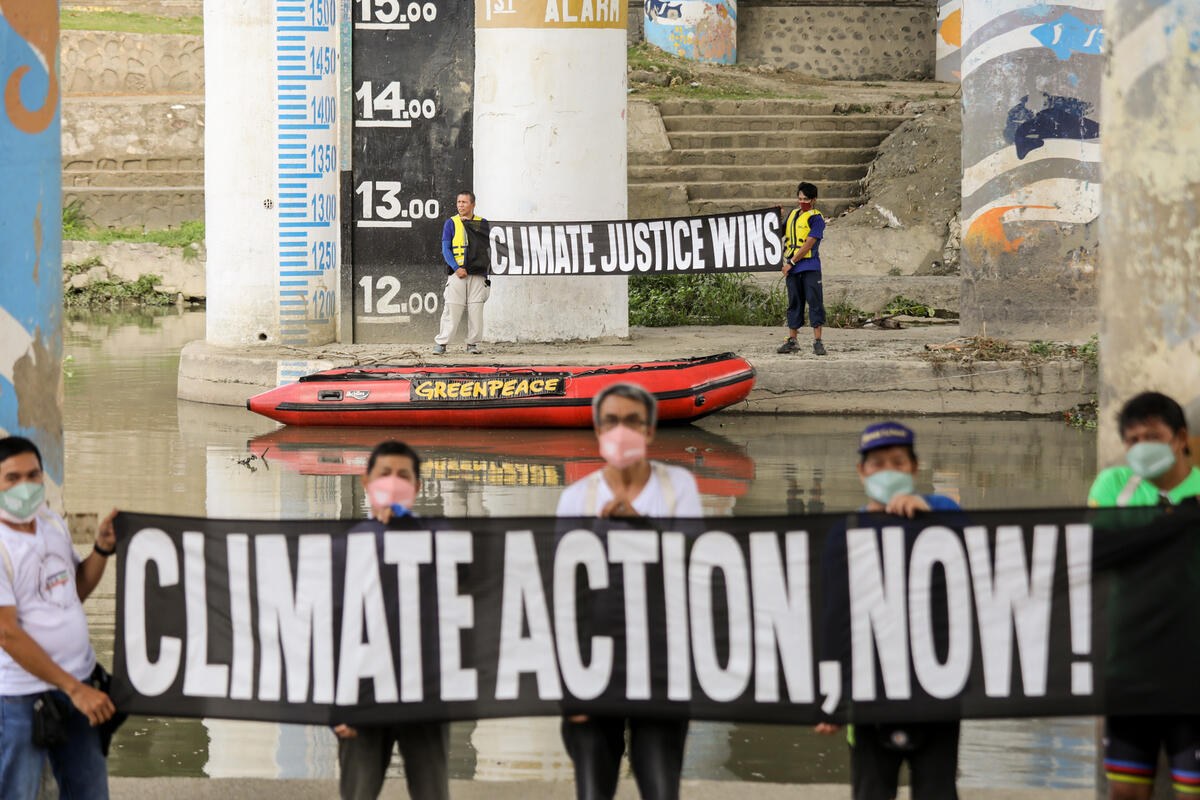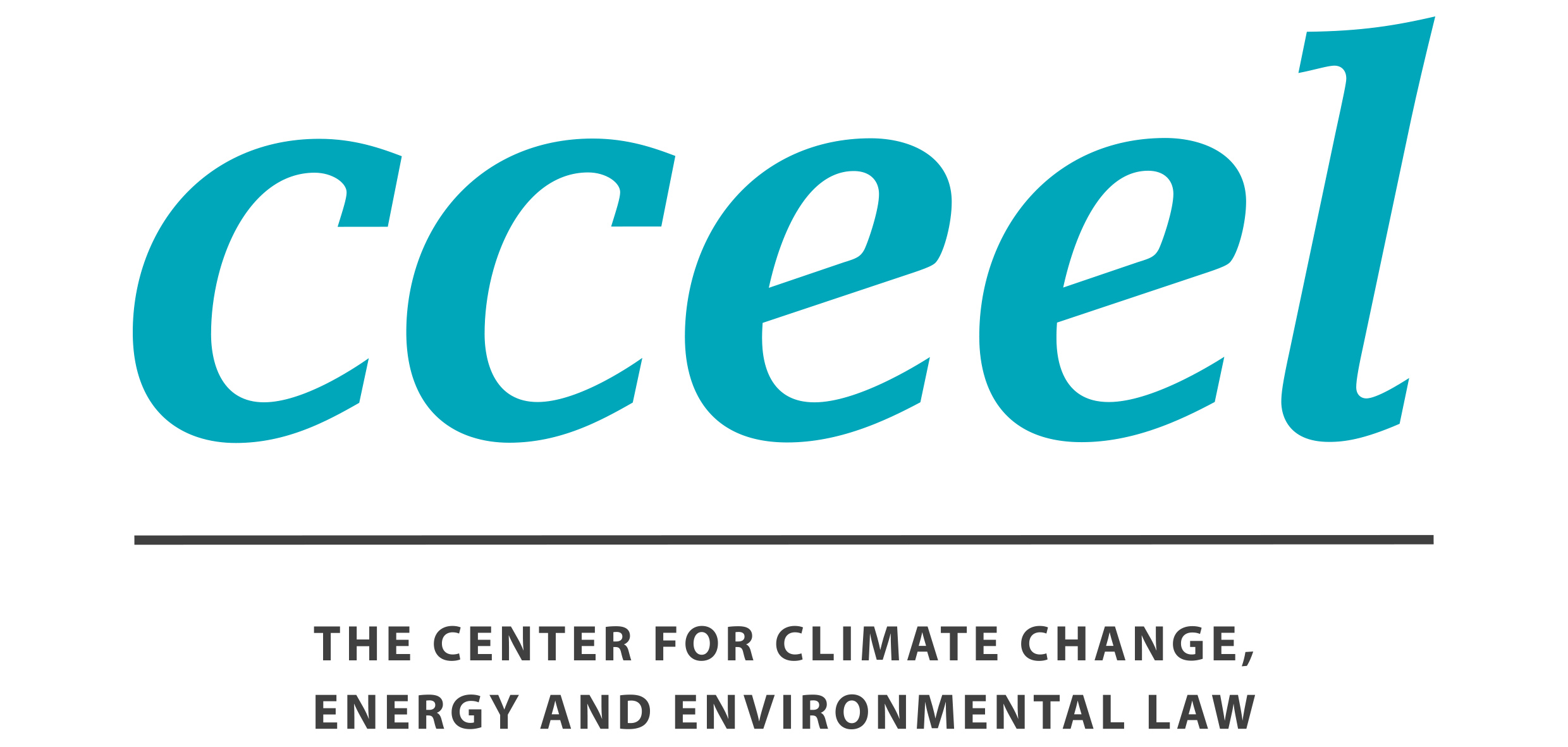Historic inquiry holds the Carbon Majors accountable for the impacts of climate change in the Philippines

By Annalisa Savaresi, Associate Professor of International Environmental Law and Margaretha Wewerinke Singh, Assistant Professor of Public International Law. First published in the GNHRE blog on 10 May 2022.
On 6 May 2022, the Human Rights Commission of the Philippines released the findings of a pathbreaking inquiry into the responsibility for the impacts of climate change of the so-called carbon majors – i.e., the world’s largest producers of crude oil, natural gas, coal and cement, including the likes of BP, Shell and Chevron.
The request to look into this matter came from a group of Filipino citizens and civil society organisations, including Greenpeace, in the aftermath a series of particularly violent typhoons, causing thousands of deaths, damage to property and livelihoods in the Philippines . The pattern of extreme weather events has intensified in recent years, with scientific studies confirming a global increase in major tropical cyclones. The petitioners relied on research attributing the majority of greenhouse gas emissions to Carbon Majors. Since then, other studies have further advanced this thesis.
The investigation of the so-called Carbon Majors inquiry started in 2015, with the aim to establish whether the Carbon Majors may be held responsible for human rights violations associated with the loss of life, livelihood and property in the Philippines associated with the impacts of climate change. Like other national human rights institutions, the Commission has a mandate to investigate alleged human rights violations and provide recommendations on how to address these. It cannot, however, provide compensation to victims.
Even so, the inquiry was the world’s first investigation of its kind and has already made history. While it is still too early to assess its full impact, the release of the Commission’s report allows us to provide at least tentative reflections on its contributions to the growing movement to promote climate justice through the invocation of human rights law. In our assessment, at least three distinct contributions can be identified.
First, the inquiry demonstrates how National Human Rights Institutions (NHRIs) can support victims of human rights violations resulting from the climate crisis in their quest for justice and accountability. Through community dialogues, fact-finding missions and hearing witnesses, the Commission used its mandate to serve as a platform for those victims, amplifying their voices and creating an official, publicly available record of their stories. This engagement signals to the world that climate change is a live human rights issue that affects people today; a message that will reverberate across the global human rights community and indeed the world at large. It also sets the inquiry apart from landmark rights-based climate cases such as Urgenda v The Netherlands, which focused on (preventable) future impacts of climate change and as such did not foreground the plight of those at the forefront of the climate crisis whose rights are already being violated.
The second major contribution lies in the Commission’s finding that the alleged human rights violations fell within its jurisdiction. This is significant because all of the Carbon Majors that chose to engage with the proceedings had challenged the Commission’s jurisdiction based on the argument that the allegedly wrongful conduct largely or fully took place outside of the Philippines. The implication of this argument was that the Commission could only inquire into the conduct of corporate entities operating within Philippine territory. In its report, the Commission firmly states that it ‘cannot accept such a proposition’ (p. 4). It goes on to clarify that by virtue of the Philippines Constitution, it has not only a mandate but ‘a duty to investigate and inquire into allegations of human rights violations suffered by our people’ (p. 4, emphasis ours) even if those violations are caused by activities outside of Philippine territory. The wider implication of this finding is that Carbon Majors can be held to account for human rights violations resulting from climate change anywhere in the world.
The third major contribution of the inquiry lies in its contribution to accountability for human rights violations caused by climate change. While most rights-based climate cases to date have focused on states’ obligations to protect human rights against the impacts of climate change, a nascent body of cases aims to hold corporations to account for their contributions to the climate crisis and associated human rights impacts. The inquiry’s focus on 47 of the world’s biggest fossil fuel firms highlights the disproportionate contributions of these firms to the climate crisis—and strongly suggests that these contributions have legal consequences.
In its findings, the Commission specifically states that the Carbon Majors
· were aware of the impacts of their products on the environment and on the climate system (p. 100)
· engaged in ‘wilful obfuscation and obstruction’ to prevent meaningful climate action (p. 104)
· are responsible to undertake human rights due diligence and provide remediation (p. 110). The same applies to their value chain (p. 112)
The report proceeds to elaborate a series of recommendations for the Carbon Majors to
· publicly disclose due diligence and climate and human rights impact assessment results, and measures taken to address these (p. 130)
· desist from all activities that undermine climate science (p. 131)
· cease exploration of new oil fields, keeping fossil fuels underground and leading a just transition to clean energy (p. 131)
· contribute to finance the implementation of mitigation and adaptation measures (p. 131)
· cooperate with experts and stakeholders to assess and improve corporate climate responses (p. 132).
The report also contains recommendations for governments, financial institutions and investors, international bodies, NHRIs, courts, NGOs, legal professionals and citizens. These include a recommendation for governments to cooperate towards a legally binding instrument to strengthen the implementation of the UN Guiding Principles on Business and Human Rights; for financial institutions and investors to refrain from financing fossil fuel related projects; and for the Government of the Philippines to enact laws imposing legal liabilities for corporate or business-related human rights abuses.
While the inquiry is a quasi-judicial process, formal litigation against the Carbon Majors has also been instigated all over the world. The Carbon Majors have already been brought to court in the US, in Germany, in France and in the Netherlands. On this blog, we reported of a landmark 2021 victory by Friends of the Earth Netherlands, whereby the Hague District ordered Royal Dutch Shell PLC to reduce its CO2 emissions of 45% by 2030, compared to 2019 levels. The ruling is significant in enforcing both international environmental and human rights obligations on a corporation.
The Carbon Majors are also under regulatory pressure, with their extraction licenses being shortened, as a result of a landmark decision taken by courts in Guyana. In 2020, Denmark announced that it would end all oil and gas exploration in its territory.
The findings of the Carbon Majors inquiry must therefore be viewed in the context of a systemic shift in approach to accountability for climate change, whereby attention is increasingly placed on the role of the world’s biggest polluters in causing and perpetuating the climate crisis. These developments may spark a domino effect, similar to that witnessed in relation to litigation for harm caused by tobacco: once a causal link is established, it may be only a matter of time before the courts start to award damages to victims. And given the transboundary nature of climate harm, the importance of the Commission’s finding that corporations may be held accountable for human rights violations suffered outside the territories in which they operate cannot be overstated.
The findings of the Carbon Majors inquiry are also relevant to ongoing law-making processes. The EU is presently debating environmental and human rights due diligence legislation for corporate actors with extraterritorial implications. The UN has initiated negotiations of a treaty establishing obligations for private commercial entities with a transnational character. The findings of the Carbon Majors inquiry therefore resonate well beyond the Philippines and contribute to the momentum for more robust climate action and accountability worldwide.
